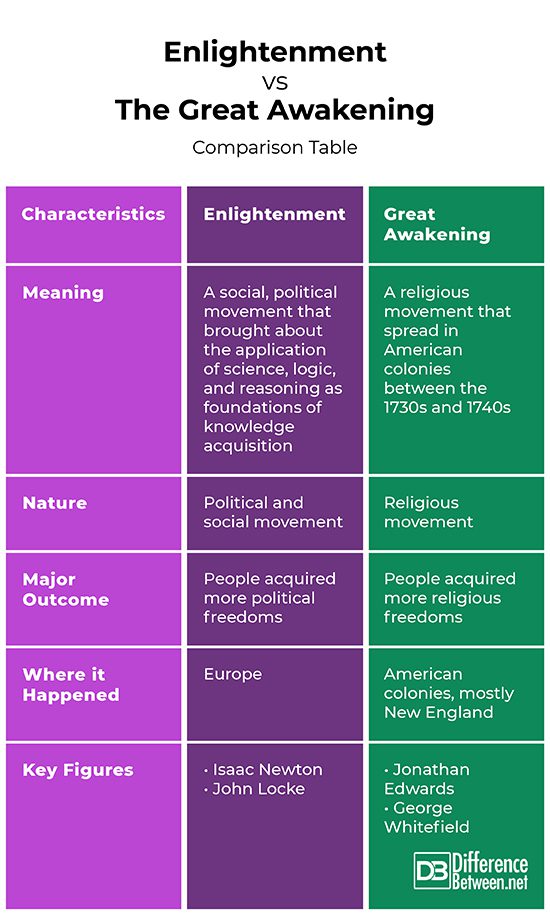The Renaissance and the Enlightenment were two crucial periods in European history that shaped the modern world, with each period differing in ideas and goals. The Renaissance, spanning between the 14th and 17th centuries, saw a renewal of classical art, literature, and science. Scholars from this period placed great importance on tradition and authority and believed in the power of reason and observation. On the other hand, the Enlightenment, spanning between the 17th and 18th centuries, rejected tradition and authority and emphasized the power of reason and rationality, focusing on science, philosophy, and the search for knowledge. Enlightenment thinkers believed that society could be improved by applying reason and rationality, inspiring political revolutions such as the American and French Revolutions.
The Renaissance vs. The Enlightenment: Contrasting Two Important Periods in History
The Renaissance and the Enlightenment are two crucial periods in history that shaped the modern world. Although they shared some similarities, they differed in terms of their ideas and goals. In this article, we will compare and contrast these two important periods in history.
Background
The Renaissance was a period in European history that began in the 14th century and lasted until the 17th century. The period marked a time of great cultural and intellectual growth in Europe, with a focus on the revival of classical art, literature, and science.
The Enlightenment, on the other hand, began in the 17th century and lasted until the 18th century. The period was characterized by a belief in reason and rationality, with a focus on science, philosophy, and the search for knowledge.
Ideas and Philosophy
One of the key differences between the Renaissance and the Enlightenment was their approach to knowledge and philosophy. In the Renaissance, there was a revival of classical learning and a renewed interest in the natural world. Scholars and thinkers in this period believed in the power of reason and observation, but they also placed a great deal of importance on tradition and authority.
The Enlightenment, however, was marked by a rejection of tradition and authority. Enlightenment thinkers believed in the power of reason and rationality above all else. They sought to develop a universal system of knowledge and to use reason to create a more perfect society.
Science and Technology
Another major difference between the Renaissance and the Enlightenment was their approach to science and technology. In the Renaissance, there was a renewed interest in science and the natural world. The period was marked by scientific discoveries and inventions, such as the telescope and the printing press.
The Enlightenment, however, was marked by a more systematic approach to science and technology. Enlightenment thinkers believed that science could be used to solve all of humanity’s problems, and they sought to develop new technologies and methods to improve human life.
Politics and Society
In terms of politics and society, the Renaissance and the Enlightenment also differed significantly. During the Renaissance, there was a strong emphasis on individualism and humanism. This led to a revival of interest in Greek and Roman culture and a renewed focus on the individual’s place in society.
The Enlightenment, however, was marked by a belief in social and political progress. Enlightenment thinkers believed that society could be improved through the application of reason and rationality. They sought to create a more just and equal society, and their ideas helped to inspire a number of political revolutions, including the American and French Revolutions.
Conclusion
In conclusion, the Renaissance and the Enlightenment were two crucial periods in history that marked significant cultural, intellectual, and scientific advances. While they shared some similarities, there were also important differences between the two periods in terms of their ideas, philosophy, and approach to science, technology, politics, and society. By understanding the similarities and differences between these two important periods in history, we can gain a better appreciation of the development of Western civilization and the ideas that have shaped the modern world.
